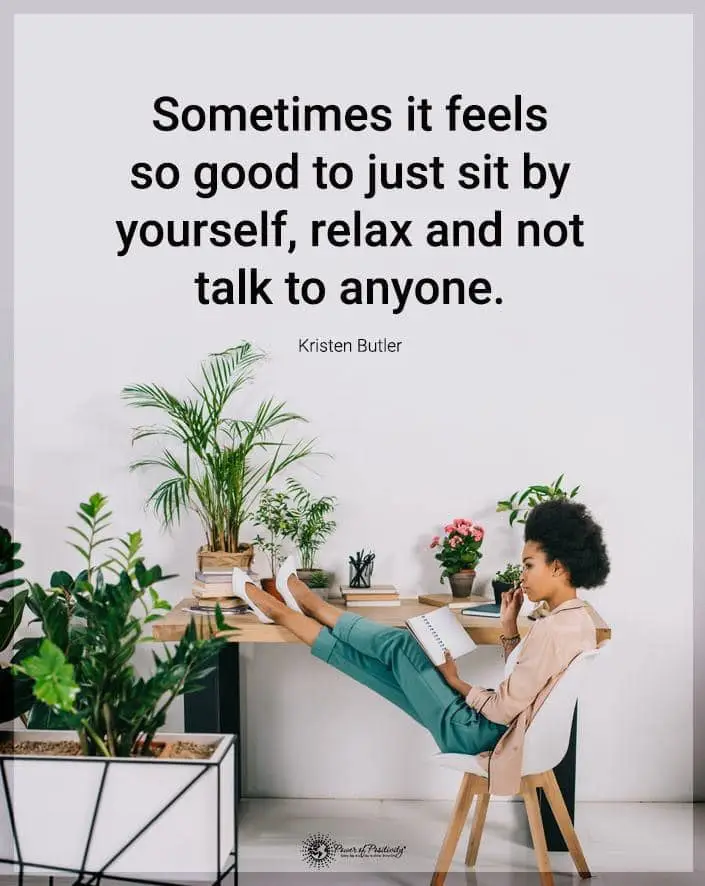When someone is in need of relaxation, it’s not always easy to spot the signs. People often push through stress, thinking they can handle it all, but the signs are there—right in front of us. Ignoring these signs can lead to burnout, affecting both mental and physical health. That’s why it’s so important to notice early changes in behavior that signal stress. By recognizing these signs, we can encourage breaks before things get worse. Whether it’s a friend, family member, or even yourself, understanding when someone needs to relax is the first step to feeling better.
Understanding the Signs of Needing Relaxation
Stress doesn’t just show up one way—it can affect both the body and mind. When someone is in need of relaxation, it’s not always obvious, but there are small changes that can signal it. Physical signs like tiredness or headaches often go hand-in-hand with mental struggles like forgetfulness or mood swings. Recognizing these behaviors early is key. It’s not just about noticing them; it’s about taking action. By catching these signs early, we can help ourselves or others find the right moment to pause, breathe, and take a break before things become overwhelming.
15 Signs Someone Needs to Relax
1. Constant Irritability and Being on Edge
When someone is in need of relaxation, small things start to feel like big annoyances. They might get irritated over things that wouldn’t normally bother them. This can mean they’re overwhelmed, lacking patience, and struggling to manage stress. Even a minor issue can lead to a big reaction, showing how much stress has built up.
2. Prioritizing Work Over Personal Life
If someone starts to put work above everything else, including family or personal time, it’s often a sign of stress. When work becomes their main focus, it’s not always by choice but because they feel pressured. This behavior suggests that they’re struggling to balance responsibilities and could benefit from taking a break.
3. Withdrawal and Desire for More Alone Time
When people suddenly want to be alone more often than usual, it could be a sign of stress. While alone time is sometimes healthy, too much can hurt relationships and lead to feelings of loneliness. If someone isolates themselves more than usual, it might be a sign they need rest and time to recharge.
4. Lack of Focus and Mental Clarity
If someone is having trouble concentrating or is easily distracted, stress might be the reason. They may struggle to remember things, lose their train of thought, or find it hard to complete tasks. Mental fatigue is a common sign that they need to unwind and reset their mind.
5. Difficulty Falling Asleep or Staying Asleep
When stress keeps the mind busy, it can be tough to fall asleep or stay asleep. Thoughts may race at night, causing restlessness or insomnia. The lack of rest only adds to their stress, creating a cycle that’s hard to break without time to relax.
6. Short Temper or Frequent Outbursts
If someone is snapping at others or showing a short temper, it’s a clear sign they’re overwhelmed. They may struggle to control their emotions, which often happens when stress levels are high. This behavior indicates they need a moment to pause and gather themselves.
7. Restlessness and Inability to Stay Still
Constant movement, fidgeting, or feeling jittery often signal stress. It can seem like they’re always trying to stay busy to avoid feeling overwhelmed. When someone can’t sit still or find calm, it’s a sure sign they need some downtime.
8. Inability to Make Sound Decisions
Stress can cloud someone’s judgment, leading to poor decision-making. They might struggle to weigh options or make choices they wouldn’t usually make. This behavior often stems from mental exhaustion, highlighting the need for a break to clear their mind.
9. Changes in Eating Habits
Stress can cause someone to eat more than usual or lose their appetite completely. They might skip meals, eat too quickly, or turn to comfort foods. These changes in eating habits are often a sign that they’re feeling overwhelmed and need some time off.
10. Sudden Mood Swings
Abrupt mood changes, from feeling happy one minute to sad or anxious the next, can be a clear sign of stress. When emotions swing unexpectedly, it’s often due to mental overload. Giving them a chance to unwind can help stabilize their mood.
11. Loss of Motivation or Interest in Activities
When someone stops enjoying activities they once loved, it’s a sign of stress. Things that used to bring joy may start to feel like chores, showing a lack of motivation. This behavior often indicates emotional fatigue and the need for some time off to regain energy.
12. Feelings of Indifference Towards Life
If someone seems indifferent or uninterested in life, they’re likely stressed. Apathy can set in when stress is too high, making everything feel pointless. Taking a break can help them find new enthusiasm and a clearer sense of purpose.
13. Increased Negativity or Pessimism
Constant negative thoughts or comments, whether about themselves or others, can be a sign of mental strain. Stress can make someone focus more on what’s wrong than what’s right, leading to a pessimistic outlook. This negativity often means they need to step back and rest.
14. Decreased Self-Care
When someone starts neglecting basic self-care, like showering regularly or maintaining their hygiene, it’s often due to feeling overwhelmed. It’s easier to let routines slide when stress takes over. This decline in self-care suggests a need for time to focus on themselves and recharge.
15. Physical Signs of Stress: Fatigue, Headaches, and Tension
Stress doesn’t just affect the mind—it can show up in the body, too. Chronic fatigue, frequent headaches, or muscle tension are common signs that someone is under pressure. These physical symptoms indicate that they need rest and relaxation to recover fully.
How to Offer Support for Someone in Need of Relaxation
When someone is in need of relaxation, they might not always ask for help. But you can step in by recognizing the signs and offering simple ways to unwind. Sometimes, suggesting a walk, a day off, or even a fun activity can make a big difference. Encouragement goes a long way—remind them that it’s okay to take a break and prioritize their well-being. Your support can be the nudge they need to slow down and recharge.
Effective Ways to Encourage Relaxation
1. Encourage Taking Breaks Throughout the Day
Taking short breaks, even just 5-10 minutes, can help clear the mind and reduce stress. A quick walk, stretching, or stepping outside for fresh air can refresh mental clarity and prevent burnout.
2. Suggest Engaging in Relaxing Activities
Activities like meditation, reading, or a quiet nature walk can work wonders for stress. These simple activities can help someone unwind, shift their focus, and feel more at ease.
3. Recommend Disconnecting from Technology
Encourage limiting screen time, especially before bed. Less screen time reduces overstimulation, helping the mind relax. Suggest setting the phone aside for a few hours to enjoy some screen-free time.
4. Promote Healthy Sleep Routines
A calming bedtime routine, like reading or listening to soothing music, can improve sleep quality. Good sleep is a key part of feeling refreshed, so remind them of the benefits of winding down before bed.
5. Offer Assistance with Tasks or Responsibilities
Sometimes, stress builds up because there’s too much to handle. Offering to help with tasks can make a huge difference, allowing them to rest more and focus on self-care.
Final Thoughts on Recognizing the Need for Relaxation
Spotting stress early and taking breaks are vital for both mental and physical health. Remember, taking time to relax isn’t a luxury—it’s a necessity. Encouraging someone to unwind can prevent bigger problems and improve overall well-being. When we help others relax, we support not just their mental health but also their happiness.















